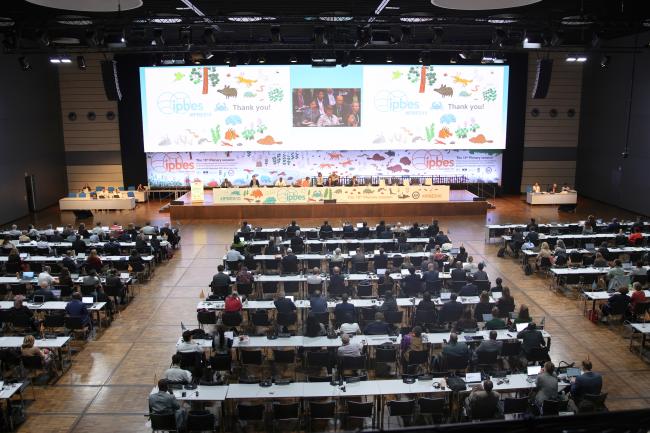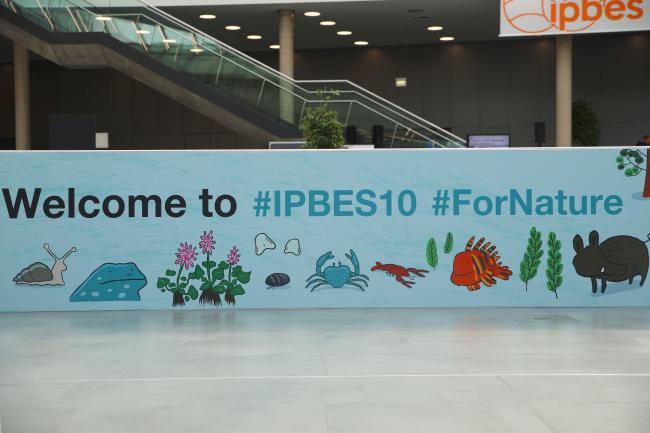Biodiversity is in rapid decline all around the world. With many species of plants and animals at risk of extinction, it is more urgent than ever to tackle the drivers of biodiversity loss and engage in transformative change. The Intergovernmental Science-Policy Platform on Biodiversity and Ecosystem Services (IPBES) plays a key role in this regard, especially through the publication of assessment reports that inform decision making at various governance levels.
Want to dig deeper into today's talks? Read the full Earth Negotiations Bulletin daily report.
During the opening of the tenth session of the IPBES Plenary (IPBES 10), speakers reflected on the momentum brought about by the adoption of the Global Biodiversity Framework (GBF) in December 2022. Many noted that IPBES should inform the implementation of the GBF and the development of its monitoring framework. To achieve this, many members and stakeholders have called for IPBES to prepare a second global assessment of biodiversity and ecosystem services, and a methodological assessment that would contribute to operationalizing the GBF’s indicators and support national biodiversity reporting.
In discussing what additional topics to address in assessment reports to be prepared up to 2030, members are also considering proposals to focus on biodiversity-inclusive spatial planning and ecological connectivity, linkages between biodiversity and climate change, and pollution. With respect to the latter two topics, members are reflecting on avenues to cooperate with the Intergovernmental Panel on Climate Change (IPCC) and the science-policy panel to contribute further to the sound management of chemicals and waste and to prevent pollution, the establishment of which is currently under negotiation.
Most of the day’s deliberations took place in plenary, with delegates hearing opening statements, reports on progress, and introductory remarks on all items on the meeting’s agenda. Among others, they heard about the progress and timeline for preparing the three reports currently underway on:
- interlinkages among biodiversity, water, food, and health in the context of climate change (nexus assessment);
- underlying causes of biodiversity loss and the determinants of transformative change and options for achieving the 2050 Vision for Biodiversity (transformative change assessment); and
- the impact and dependence of business on biodiversity and nature’s contributions to people (business and biodiversity assessment).
In a working group session in the afternoon, delegates began discussing the thematic assessment of invasive alien species (IAS) and their control, with IPBES 10 set to approve the summary for policymakers of the report and accept its chapters. Many members underscored the relevance and timeliness of the report, noting IAS are one of the five key direct drivers of biodiversity loss and are covered by a dedicated target under the GBF.
In the evening, delegates enjoyed a reception, hosted by the US.
All ENB photos are free to use with attribution. For IPBES 10, please use: Photo by IISD/ENB | Anastasia Rodopoulou.
To receive free coverage of global environmental events delivered to your inbox, subscribe to the ENB Update newsletter.















































